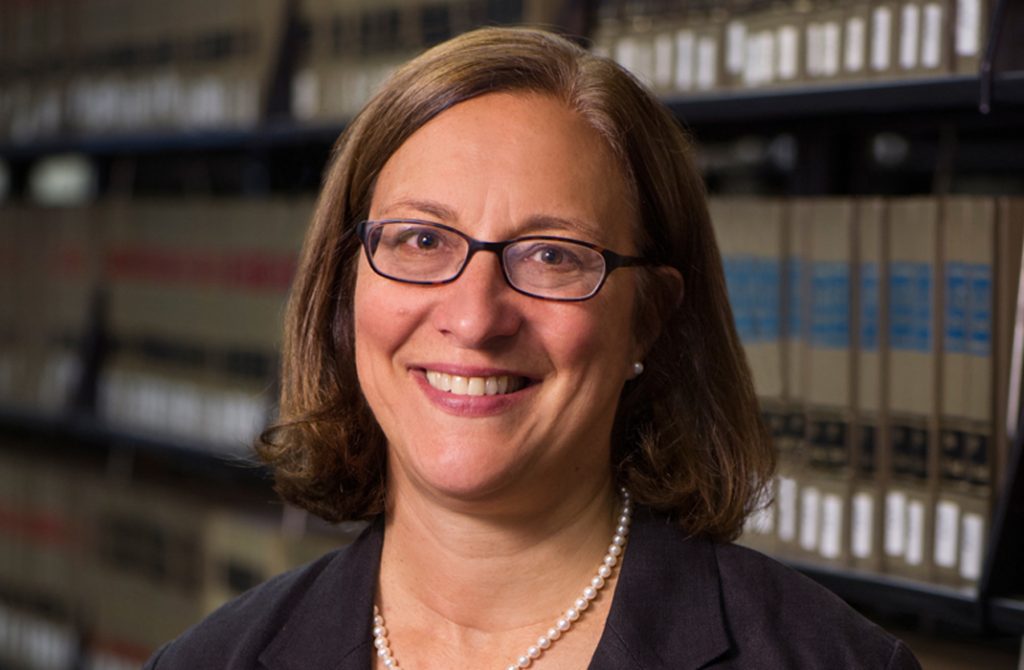Boston College Law School Associate Clinical Professor Sharon Beckman and Boston College Professor of Psychology Elizabeth Kensinger presented on “Science, Memory, and Eyewitness Identification” at the annual conference of the district court department of the Massachusetts trial court, held at Williams College on June 18th. The opportunity to address the state’s district court judges arose from Professor Beckman’s service on the Massachusetts Supreme Judicial Court’s Standing Committee on Eyewitness Identification which is charged with “offering guidance to the courts on eyewitness identification procedures” (see earlier BC Law Magazine stories on Beckman’s appointment, the Wrongful Convictions panel held at BC Law, and the SJC announcement).
The interdisciplinary collaboration between Beckman and Kensinger began when Beckman, who directs the BC Law Innocence Program, invited Kensinger, who directs BC’s Cognitive and Affective Neuroscience Laboratory, to teach the science of memory to students in her Wrongful Convictions class.
“Professor Kensinger’s teaching was transformative,” says Beckman. “76% of the first 350 DNA exonerees were convicted based on mistaken eyewitness identifications. Professor Kensinger’s experiential approach to the subject — inviting the law students to experience their brains tricking them into thinking they had seen and heard things they did not and misidentifying objects they saw every day — combined with her explanation of why their brains tricked them, helped them comprehend the counter-intuitive fact that eyewitness testimony, though highly persuasive, is among the least reliable types of evidence.”
When Beckman received the invitation to address the state’s district court judges, she asked Professor Kensinger to join her, with similar impact. “The judges — including those with decades of experience — were on the edges of their seats wanting to know how they could reduce the risk of error,” said Beckman.


